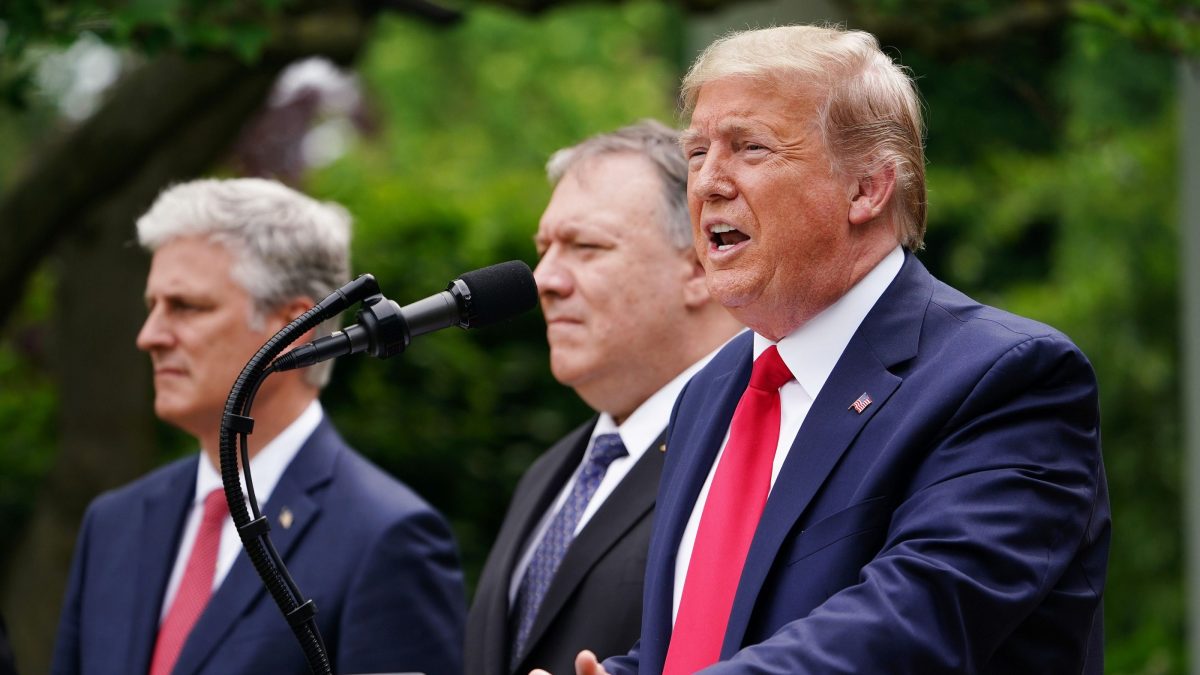White House negotiators and Democratic lawmakers were unable to hammer out a deal on a new stimulus package on Friday, as the U.S. economy reels from the impact of the coronavirus pandemic.
“We are far apart, yes,” said House Speaker Nancy Pelosi, as she left the talks.
“It was a disappointing meeting,” said Chuck Schumer, the top Democrat in the Senate.
Democrats want a wide-ranging bill worth some 3 trillion dollars. Republicans proposed a pared-down proposal worth about one trillion dollars, but have made some concessions, including on the size and length of unemployment assistance.
“The president would like us to make a deal, but unfortunately we did not make any progress today,” Treasury Secretary Steven Mnuchin said after he left the meeting.
He indicated the White House was only interested in more talks if “new proposals” were on the table.
Democrats accuse Republicans of trying to short-change the bill and warn that without sufficient funding the costs will be higher in the long run.
Republicans say their rivals are padding the legislation with pet projects and overspend and adding to the deficit.
At play are the funds for schools, unemployment benefits, federal aid to states and more money for fighting the coronavirus pandemic itself.
President Donald Trump has threatened to issue executive orders if the sides did not reach a deal by the end of the business week, and Mnuchin said he would recommend that his boss move ahead with the plan.
Trump is limited in what he can do, because the power of the purse rests with Congress, but Mnuchin said the president could issue limited orders on housing and student loan repayments.
Such a move would certainly irk the Democrats and add to the impasse.
During a press conference on Friday, Trump said that he would act under his authority as President if “the Democrats continue to hold this critical relief hostage.”
Trump’s executive order would defer the payroll tax and extend enhanced unemployment benefits until the end of the year, defer student loan payments and interest until further notice, and would also extend a moratorium on housing evictions.
“It could be by the end of the week. It’s being drawn by the lawyers right now,” Trump warned.
Key benefits enacted earlier this year as the pandemic hit have expired, including enhanced unemployment payouts and a federal ban on housing evictions.
“Financial assistance to small business is soon set to run out.
“We’ll be meeting this afternoon, and I will once again make the offer: We’ll come down a trillion you go up a trillion and we’ll be within range of each other,” Pelosi told reporters before she went into the meeting.
The White House indicated that the Democratic proposal, still worth north of 2 trillion dollars, was more than they believed was needed to help schools reopen and support those made jobless by the pandemic.
A host of technical issues beyond the dollar figure have apparently contributed to the impasse, such as liability protections for employers that the Republicans are seeking.
Pelosi has ruled out reaching a temporary piecemeal agreement that narrowly focuses on unemployment benefits, as she fears she will lose her advantage in talks to force a larger bill.
Congress has already allocated 3 trillion dollars in the stimulus bills enacted since March to fight the pandemic and help the economy, with fiscal hawks growing increasingly worried about the deficit.
However, the unemployment rate remains in the double digits and there are signs that the economic recovery is slowing.
Meanwhile the number of new infections continues to rise, further threatening a rebound from the worst recession since World War II. (dpa/NAN)




 Premier League
Premier League